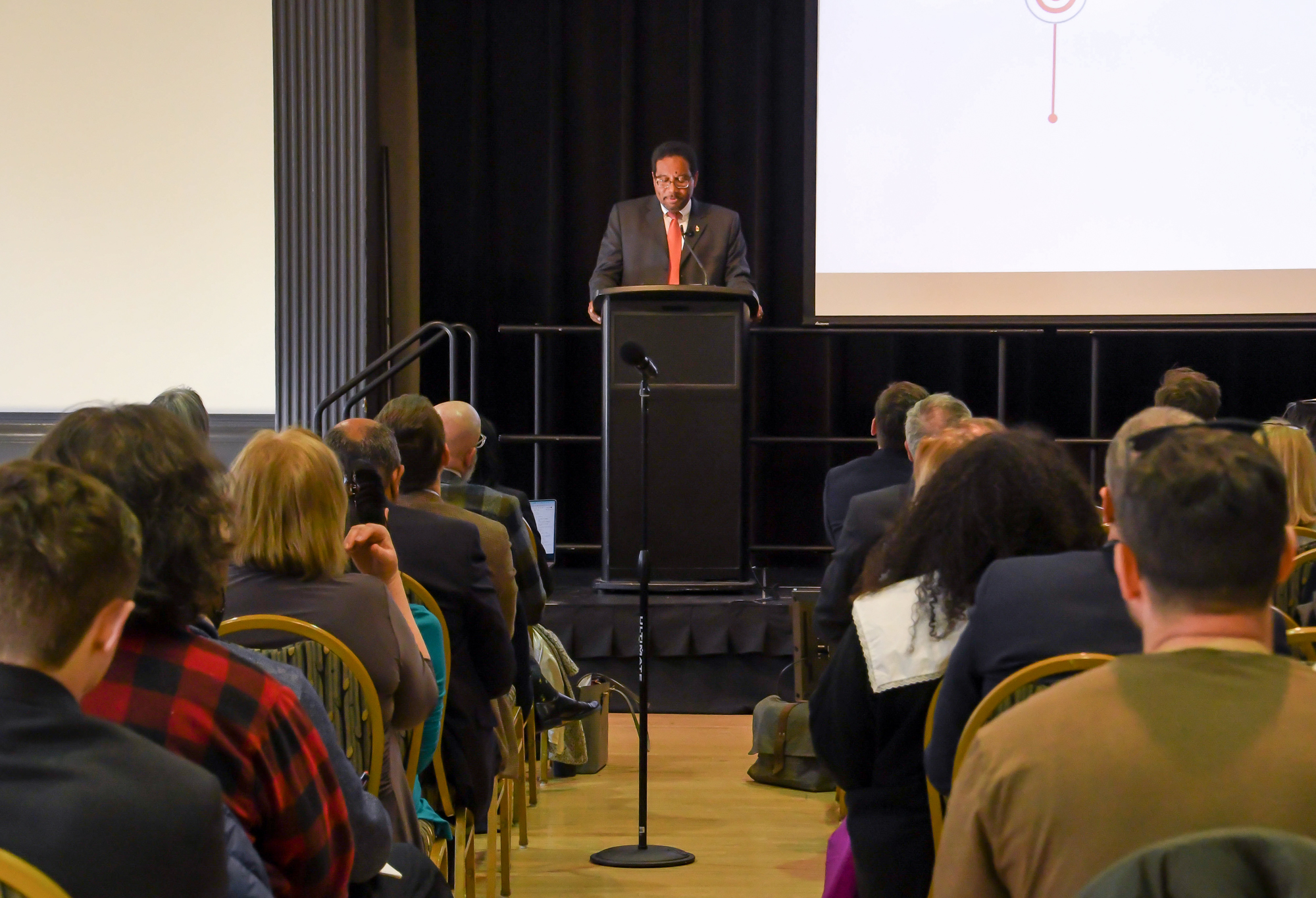University of Maryland President Darryll Pines acknowledged the rise of ChatGPT by using it to write part of his State of the Campus address Wednesday.
“The calculator was just a tool, just a tool. ChatGPT is the newest of our tools,” Pines said. “So don’t be afraid of it. We have to understand it — its limitations, its benefits, its pitfalls. ”
He also celebrated accomplishments by students and faculty.
The university now has 67 members of the National Academies of Sciences, Engineering and Medicine among its faculty, Pines said. He highlighted the achievements of professors Ruth Zambrana — the only fellow in the National Academy of Medicine at this university— and Ji-Cheng Zhao— who is a member of the National Academy of Engineering, the National Academy of Inventors and the American Association for the Advancement of Science.
[UMD RHA, Muslim Student Association hold town hall about dining hall halal options]
Pines also talked about distinguished university biology professor Sean Carroll, who was nominated for an academy award for his role as executive producer of the documentary All That Breathes.
This university placed fourth in the William Lowell Putnam Mathematical Competition, a national math competition for undergraduates across the United States and Canada. This was the school’s best finish in more than four decades, Pines said, ranking first of all the public schools in the event. Three students at this university made the top 100 scorers out of more than 3,000 participants.
During his previous address in the fall semester, Pines announced the finalists for the Grand Challenges Grant Program, which was designed to give $30 million in awards to research focusing on pressing social and policy issues.
[Black researchers at UMD advocate for representation, mentorship]
During Wednesday’s address, Pines announced the winners of the grant, which has the largest award amount of up to $1 million per year for three years of funding. The winners were Addressing Climate Change for a Sustainable Earth, the Maryland Initiative for Literacy and Equity and the Global FEWture Alliance.
Six other projects won impact awards, which provide up to $250,000 per year for two years of funding: the Maryland Initiative for Digital Accessibility; Urban Equity Collaborative; Democracy Research, Education, and Civic Action; Microbiome Sciences; Values-Centered Artificial Intelligence and the Pandemic Preparedness initiative.
“Winners of these competitive grants will engage undergraduate and graduate students, community members and other stakeholders in taking creative evidence-based strategies out into the real world where they can have a tangible impact,” Pines said.



